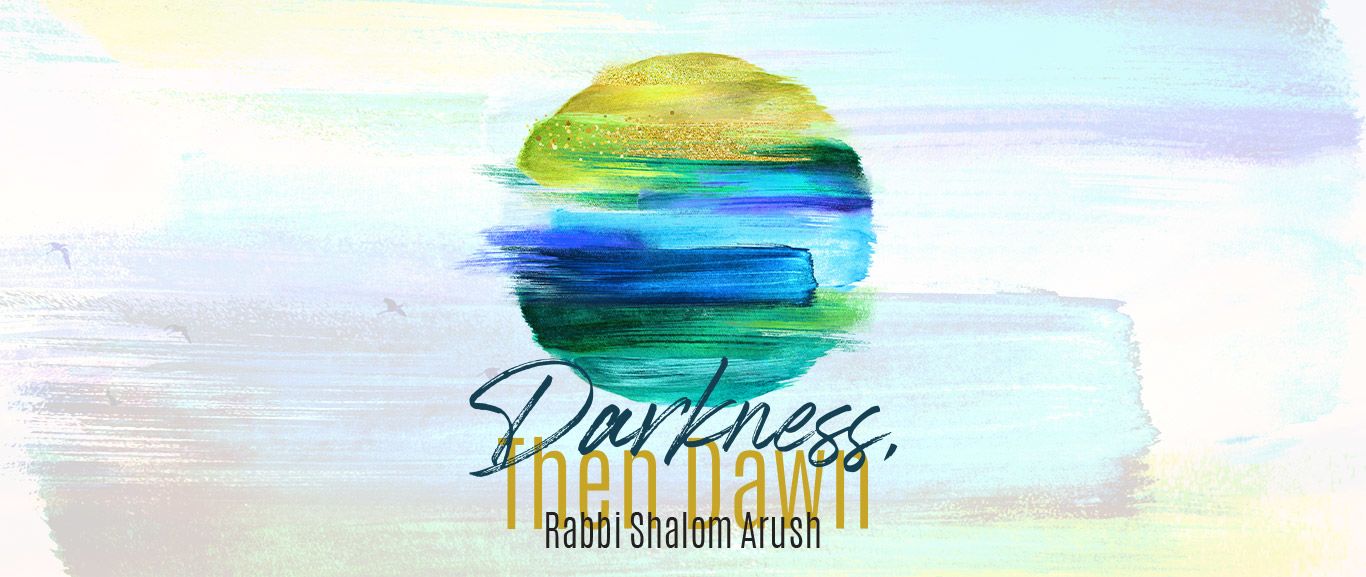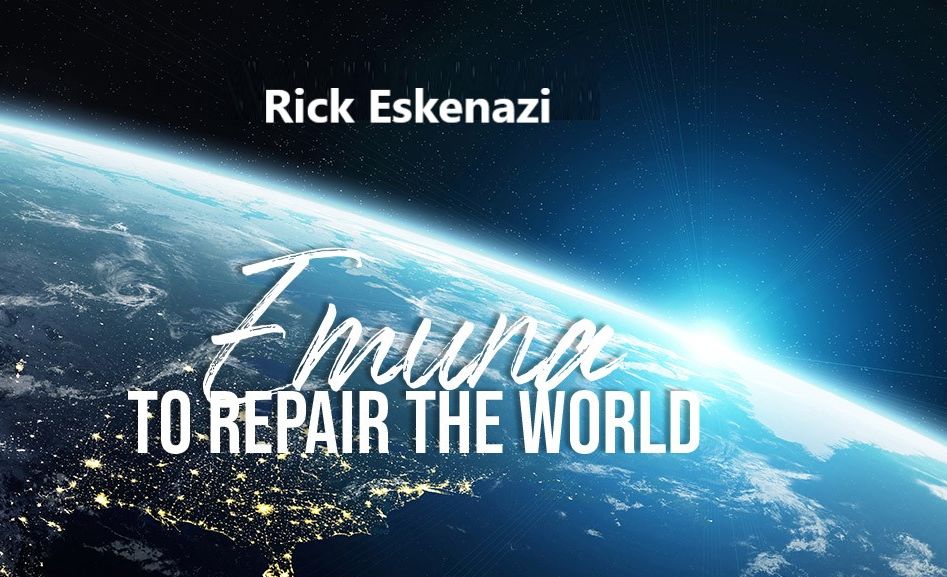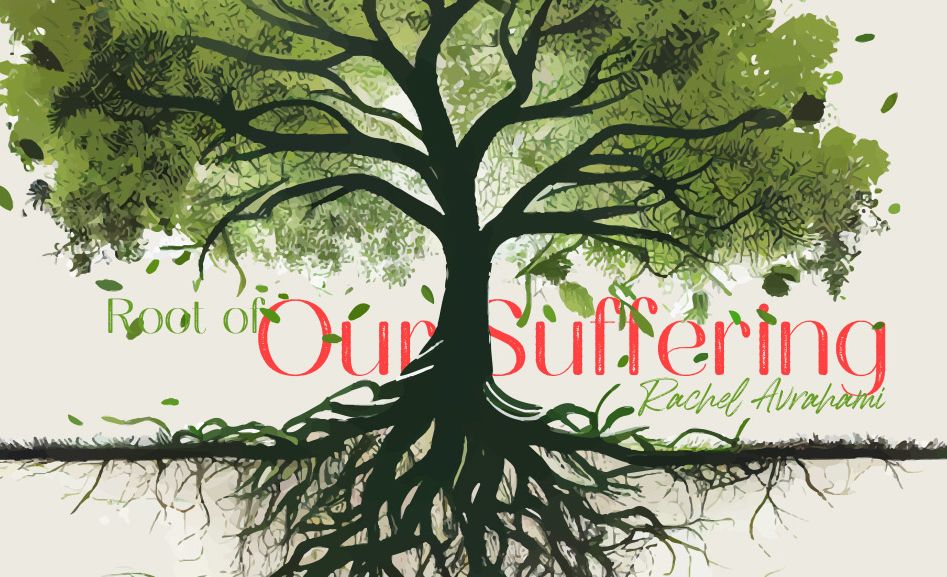
Darkness, Then Dawn
With Tisha B'Av, don't ever lose hope; with emuna, your period of darkness will be followed by a wonderful illumination. The darkness actually leads to the light...

This week, we have Tisha B’Av, the dreariest day of the Jewish calendar. Yet a few days later is Shabbat Nachamu, the happy Sabbath of Consolation, followed by Tu B’Av, one of the happiest days in the Jewish calendar. What do we learn from this? First there’s darkness, then comes dawn. Don’t ever lose hope; with emuna, your period of darkness will be followed by a wonderful illumination. The darkness actually leads to the light.
When we’re going through difficult times and life just isn’t as smooth as we’d like it to be, we should stop and ask ourselves: maybe what’s happening to me is because I forgot about Hashem and I thought that I could manage without His help? Maybe my arrogance has been surfacing lately? In times of darkness, a person begins a process of soul-searching. In that respect, the darkness serves a good purpose for it helps to bring a person back to emuna. It straightens the crookedness of his heart. Such a situation is comparable to a person  in a very dark room; he can’t manage in the dark, so he searches for the light switch. So too, when a person’s soul is suffering from spiritual darkness, it looks for the light of emuna to illuminate it. Therefore, if a person reminds himself during challenging times that everything is from Hashem and everything is for the very best, the darkness will disappear. The light of emuna chases away the darkness from the soul.
in a very dark room; he can’t manage in the dark, so he searches for the light switch. So too, when a person’s soul is suffering from spiritual darkness, it looks for the light of emuna to illuminate it. Therefore, if a person reminds himself during challenging times that everything is from Hashem and everything is for the very best, the darkness will disappear. The light of emuna chases away the darkness from the soul.
The prophet Isaiah says, “The nation treading in darkness saw a great light.” In other words, those who don’t rebel against Hashem during times of darkness and take heed of Hashem’s message will eventually see a great light. In this respect, spiritual descent is a preparation for a strong ascent. The darkness comes before the light. One who doesn’t kick and complain during difficult times, yet strengthens himself in emuna while looking for Hashem within the darkness, will ultimately see how everything Hashem did in his life was always for the very best. He who accepts his tribulations with emuna will certainly rise to great heights.
If a person doesn’t learn how to function in the dark – during setbacks and difficult times – he’ll never find the light.The whole purpose of the darkness is to arouse us to seek the light, an enhanced closeness with Hashem. The descent is designed to trigger greater ascent. We take a temporary step down to move two steps up. We are reminded that we are powerless without Hashem, and there is nothing but Him.
If a person on a downward slide ignores Hashem’s message, then he’ll fall even deeper.
King David says in Psalm 92, “To tell of Your loving-kindness in the morning and of Your emuna at night.” In other words, during good times, the “morning” where we see Hashem’s compassion and blessings clearly and apparent as in broad daylight, it’s easy to thank Hashem. But at “night”, the times of darkness when we can’t see or understand how Hashem is doing everything for our ultimate benefit, s then we must search for emuna and look for the ray of light within the darkness, in other words, the inherent good that’s concealed within life’s difficult moments. By attempting to understand the Creator’s message within the challenge at hand, one turns a setback into an ascent.
Another reason why darkness always precedes light is that many people don’t appreciate life’s blessings until they’re taken away from them. For example, a starving person appreciates every little morsel of food, even a dried crust of three-day-old bread. A person who once suffered dire poverty doesn’t take a dollar in his pocket for granted. A couple who waited years for children feels indescribable joy when finally blessed with a child. The list goes on and on, but the point is that deficiency is actually a catalyst for happiness and appreciation once a person attains what he was lacking. As such, the deficiency – a type of darkness in one’s life – becomes a receptacle for abundance, which is comparable to light.
People whose abundance was obtained after a period of deficiency do not take the abundance for granted. They seldom have a sense of entitlement either. They appreciate their blessings and the express their gratitude. Human nature, though, is to take things for granted. Consequently, Hashem created darkness before the light so that man will appreciate the light, for the express purpose of uprooting a person’s lack of appreciation and sense of entitlement. May the darkness of Diaspora and exile soon yield to the light of our rebuilt Holy Temple, speedily and in our days, amen!












2/13/2014
The Light is Emuna and we’re all guarantors for one another, right? "If a person doesn't learn how to function in the dark – during setbacks and difficult times – he'll never find the light." How can this be if we're all on board together? Rav Dror said we are going 3 generations back to bring us Home because the evil nazis went three generations back to kill us. What is the point of personal ascent if our fellow Jew won't ever find the light? From my perspective it seems selfish for me to climb up high while people are at the bottom, unless can share emuna.
2/13/2014
"If a person doesn't learn how to function in the dark – during setbacks and difficult times – he'll never find the light." How can this be if we're all on board together? Rav Dror said we are going 3 generations back to bring us Home because the evil nazis went three generations back to kill us. What is the point of personal ascent if our fellow Jew won't ever find the light? From my perspective it seems selfish for me to climb up high while people are at the bottom, unless can share emuna.